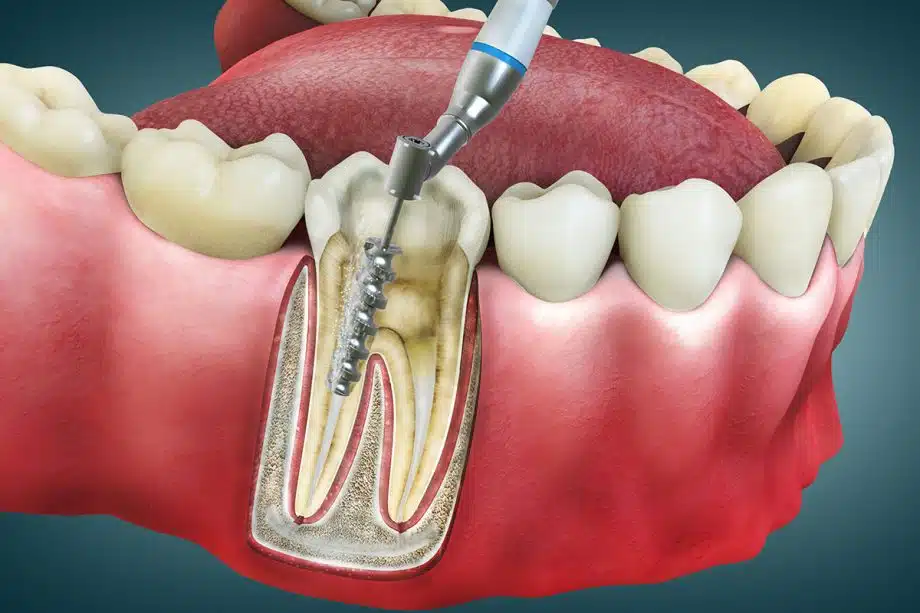A root canal is a relatively simple, minimally invasive procedure. That being said, it is still common to experience mild discomfort in the hours and days afterwards. Advancements in technology have made root canals gentler and more comfortable than ever before. In fact, you may not feel any pain at all, during the procedure or after.
However, if you do, you may be wondering what you can eat after getting a root canal. Here are some suggestions to help you navigate eating and nutrition to accelerate your recovery.
What is a Root Canal?
A root canal is a procedure that addresses the part of the tooth it is named for. The root canal is the inner chamber of a tooth that contains soft tissue called dental pulp, made up of blood vessels and nerves that keep the tooth alive. When the root canal is breached or threatened, bacteria may reach the dental pulp and cause an infection. The purpose of a root canal is to treat or prevent an infection.
The procedure involves removal of infected dental pulp through a small hole made in the crown of the tooth. The root canal is cleaned out and disinfected, then filled with new material that is resistant to infection. The tooth is then sealed with a filling or a crown.
Recovery After a Root Canal
On average it can take anywhere from 24-48 hours to recover from a root canal. Some patients may need additional recovery time and others may need almost no time at all. Often it depends on the type of anesthesia you have during the procedure. Local anesthesia wears off within an hour of the procedure in most cases. Sedation may take a few hours to wear off, meaning you’ll need to rest at home afterwards.
Food and Beverage Recommendations During Recovery
Before your procedure it is a good idea to stock up on soft foods that are nutritious to help you recover more quickly. Suggestions include:
- Yogurt
- Smoothies
- Pudding
- Jello
- Mashed potatoes
- Soup (creamy, not chunky)
- Cottage cheese
- Ice cream
- Protein drinks
When you are ready for more solid foods, ease into it with these options:
- Chunky soup
- Scrambled eggs
- Pasta
- Soft bread (no hard crust)
- Cheese
- Soft or pureed meats
- Avocado
- Soft fruit
- Cooked vegetables
Listen to your body and pay attention to how you feel. Only eat what you can eat without pain or irritation. Gradually work up to more solid foods as you are ready. Avoid hard, crunchy, and spicy foods. Allow food and beverages to cool completely before consuming.
When to Resume Your Regular Diet
You can most likely resume eating your usual foods within a week of a root canal. If you still experience any discomfort, consider waiting two weeks before eating anything particularly hard or chewy. Avoid chewing in the area of your root canal for a few weeks, especially if you received a crown.
Frequently Asked Questions About Root Canal Treatment
What kind of anesthesia is required for a root canal?
The majority of patients only require local anesthesia. For those who are nervous or anxious, sedation options are available to help you relax.
Do all root canals need a crown?
Not every tooth that gets a root canal will need a crown. However, it is often the recommended treatment when the natural tooth is severely decayed or damaged. A tooth that receives a crown after a root canal tends to last longer.
Why Choose Barkoff Dental for Your Root Canal?
If you’re in need of a root canal, going to your general dentist is typically the easiest and most affordable option. Barkoff Dental provides root canal treatment that can often save your natural teeth, eliminating any discomfort you may feel. After a root canal, a tooth can last for many years, often for the rest of your life.
Call 516-921-1133 or contact us today to learn more and schedule an appointment.

